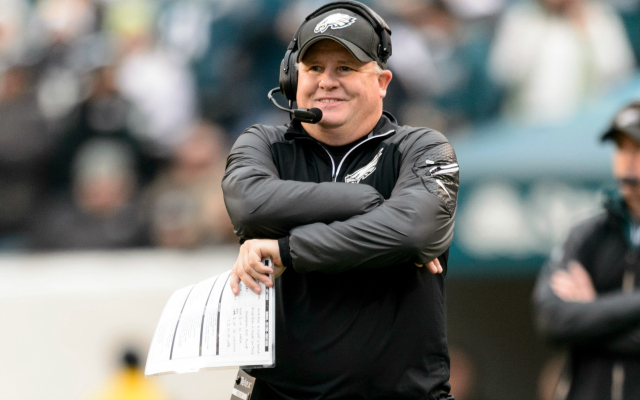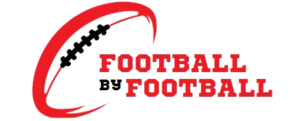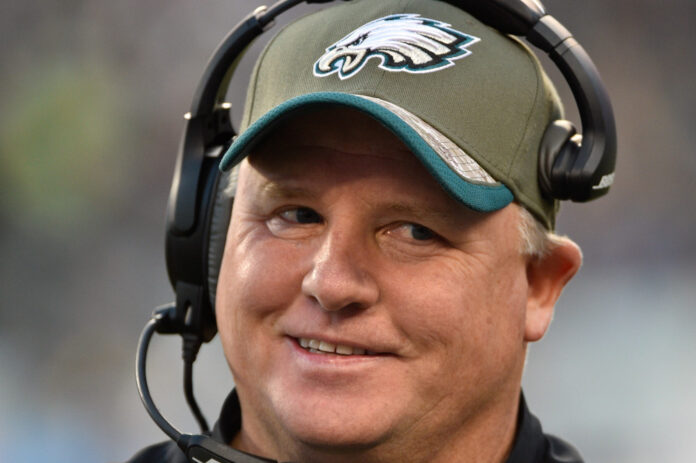Can Chip Kelly Use Tim Tebow to Change Perception in the NFL?
The age-old adage, “If it’s not broken, don’t fix it,” reflects human nature’s resistance to change and the discomfort it brings, a sentiment that resonates within the NFL.
The National Football League has often proven to be a realm where new trends and innovations face a slower adoption process than broader society.
Just a short while ago, the league was hesitant to embrace African-American quarterbacks. Still, the NFL experience has conclusively shown that a quarterback’s race does not influence their high-performance capabilities.
Recently, a significant shift in the NFL landscape emerged with the hiring of Chip Kelly by the Philadelphia Eagles.
His introduction challenged the established status quo within the league.
The question lingered: could Kelly’s fast-paced, straightforward, shotgun-based spread offense withstand the rigorous scrutiny of NFL defenses, which had ample time to prepare?
Many pundits initially voiced skepticism, believing the odds were against it.
However, as Kelly’s first two seasons unfolded, they produced consistently high-scoring offenses, causing even some staunchest critics to reevaluate their stance.
It wasn’t just the critics who altered their perspective. The winds of change swept across the NFL itself.
The Miami Dolphins, for instance, brought in Bill Lazor, a former Kelly assistant, to implement the very same offensive system.
Furthermore, franchises like the Green Bay Packers, New England Patriots, and the Seattle Seahawks have adopted various elements of Kelly’s offensive philosophy.
In this evolving landscape, the once-dominant “pro-style” offense no longer monopolizes the definition of effective offensive football within the NFL.
Nevertheless, a complete acceptance of diverse approaches within the league, especially concerning the game’s most prominent position, remains elusive.
This hesitancy has been apparent during the draft process, particularly with top prospect Marcus Mariota.
The Heisman Trophy winner’s draft stock has been clouded by concerns about his experience in a spread offense during college.
Despite Chip Kelly’s achievements and his growing influence, there still exists a degree of wariness among franchises when it comes to embracing the spread system.
The upcoming decisions regarding Mariota’s NFL journey will be particularly intriguing.
Will he follow in the footsteps of players like Russell Wilson and Colin Kaepernick, who seamlessly integrated spread and read-option elements into their gameplay, or will he be pressured into an unnecessary and complete transformation to a pocket passer?
These choices will serve as a litmus test for how far the NFL’s thinking has evolved.
The recent signing of quarterback Tim Tebow by the Philadelphia Eagles adds another layer to the narrative.
Tebow, who spent the last two NFL seasons on the sidelines and created something of a spectacle during his stint as Mark Sanchez’s backup with the Jets in 2012, highlights the league’s tendency to maintain an arm’s length from quarterbacks who require a specific system to thrive.
This scenario underscores the persistent reluctance to embrace alternative approaches in the NFL fully.

The rationale behind Denver Broncos executive John Elway’s decision to part ways with Tim Tebow becomes evident when examining the circumstances.
Despite some hard-fought victories in the 2011 season, characterized by stellar defensive performances and clutch late-game scores, the Broncos’ offense struggled to put points on the board.
Under Tebow’s leadership, the offense failed to surpass 18 points in eight games during that season. This consistent underperformance placed an undue burden on the defense, a situation that an offensive-minded general manager like Elway was unlikely to tolerate.
A mere week after Tebow orchestrated a memorable playoff win over the reigning Super Bowl champions, the Pittsburgh Steelers, the New England Patriots exposed the Broncos’ vulnerabilities with their potent aerial attack.
Tebow appeared out of his element and struggled to keep pace against such a high-octane offensive opponent.

Tebow’s journey continued as he joined the New York Jets, but his role as a peripheral figure attempting to execute a handful of wildcat plays proved to be a futile endeavor for all parties involved.
His brief stint with the Jets did not allow him to make a significant impact.
Subsequently, the New England Patriots extended a lifeline to Tebow, signing him on June 11th, after most of the offseason training had concluded.
Although the Patriots tailored their system to incorporate read-option and spread packages closely resembling what Tebow had executed in Denver, he faced challenges throughout the preseason. He ultimately failed to secure a spot on the team.
It is essential to approach any conclusions drawn from this experience with caution, both regarding the suitability of the spread offense and Tebow’s abilities.
The primary challenge lay in the fact that he had only weeks to adapt to new terminology, a new city, acclimate to new teammates, and adjust to a different organizational culture.
For a quarterback, such a short timeframe is hardly realistic for complete assimilation. However, this limited window of opportunity is not unusual when one is not the team’s top priority.
Why Might Philadelphia Be Different?
What makes the opportunity with the Philadelphia Eagles more practical this time is the timing of Tim Tebow’s signing about his expected role.
Assuming he remains with the team throughout the offseason, Tebow will fully immerse into the Eagles’ offensive system, facilitated through workouts, OTAs, and mini-camps.
This preparatory phase will precede his involvement in training camp and preseason games. When the decision is ultimately made, it will be based solely on Tebow’s ability to contribute effectively to the team.
However, Chip Kelly’s decision to sign Tebow again placed him under the critical spotlight. To Kelly’s credit, the move carries minimal risk on his part, as there is no guaranteed money in Tebow’s contract.
The Eagles’ current quarterback roster includes Sam Bradford, Mark Sanchez, Matt Barkley, G.J. Kine, and Tebow. While Tebow’s role within this lineup remains uncertain, the picture should become more apparent after the draft.
Given Kelly’s non-traditional approach to offensive football, it wouldn’t be surprising if Tebow is utilized creatively, potentially with packages and play-calls that cater to his running abilities, sidestepping his limitations as a passer.
In such an environment, players can often excel by playing to their strengths.
Kelly is not a conventional coach in moving the football, but he is driven by the desire to score. The ultimate test for Tebow will be his ability to lead his groups effectively and put points on the board.
While Kelly has a penchant for the spread offense, it’s improbable that performances resembling Tebow’s time in Denver will suffice in Philadelphia.
The challenge for Tebow will be to harness this newfound freedom and reconnect with his earlier successes. At the very least, this opportunity represents a more promising scenario than what he encountered in other places.
It’s important to note that Chip Kelly doesn’t necessarily need to transform Tim Tebow into a starter to bring about a shift in perceptions.
The likelihood of such a transformation occurring is slim. However, if Kelly can mold Tebow into a valuable contributor within his system as a backup, it would mark a notable departure from the status quo of the past two years.
The path beyond this barrier remains uncertain, but the potential for change exists.
The developments surrounding players like Mariota and Tebow, who do not fit the traditional molds, will be captivating storylines to follow throughout the offseason.
With coaches like Kelly challenging the NFL’s culture to break away from rigid approaches and embrace a player’s strengths, the league may undergo significant changes shortly.

